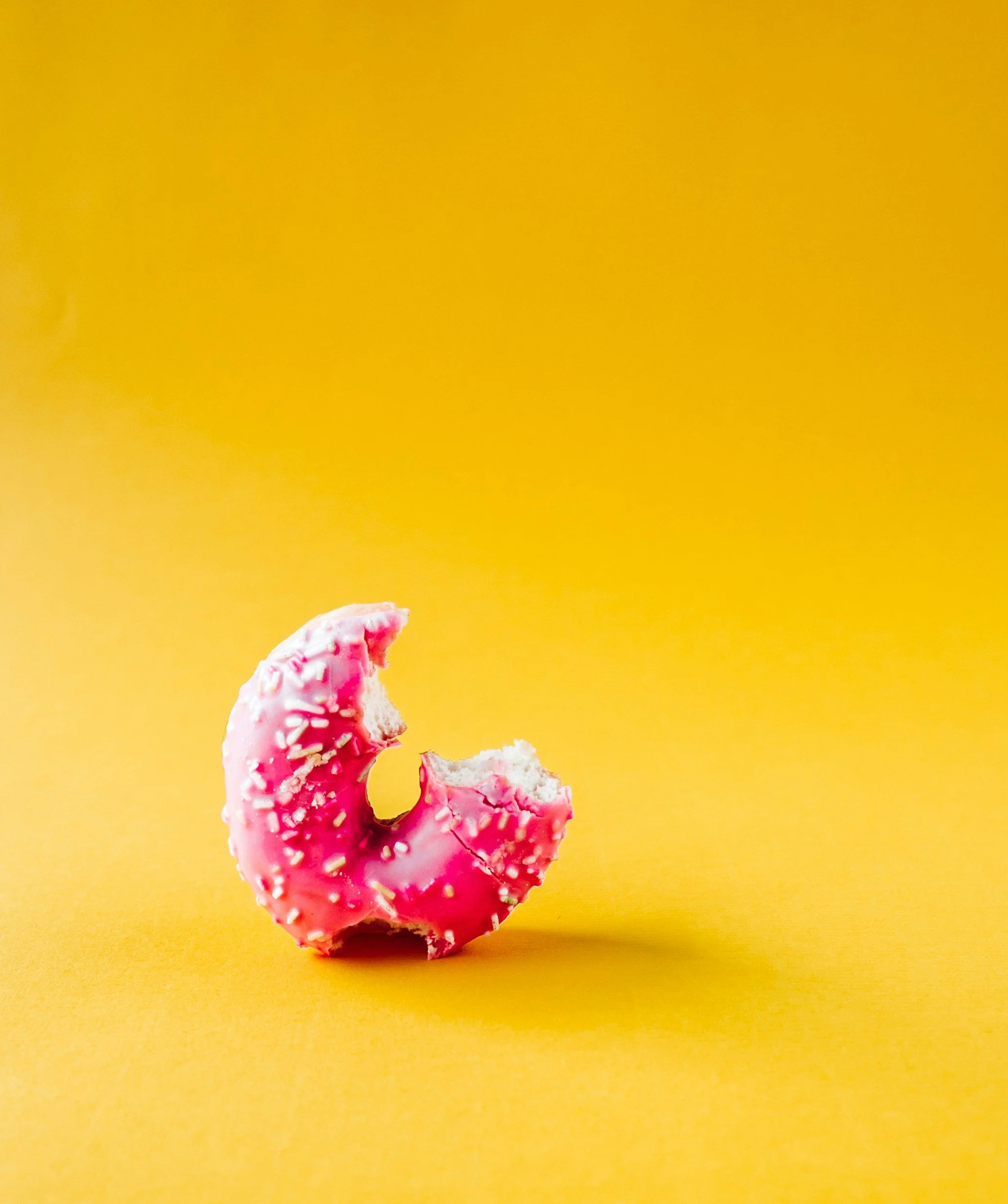What Happens When You Give Yourself Permission To Eat?
Give yourself unconditional permission to eat, because it WILL help break the vicious cycle of dieting and binges.
When we tell ourselves we can’t have a certain food, we (including our bodies) want it more. Then, when you inevitably ‘give in’ to your cravings for that food, it leads to overeating and feelings of shame.
Evelyn Tribole and Elyse Resch, the creators of the intuitive eating approach, said “Deprivation sets off a biological drive. Psychological forces wreak havoc with your peace of mind, triggering cravings, obsessive thoughts, and even compulsive behaviors.”
Then, the deprivation backlash leads to ‘rebound eating’, such as The Last Supper Mentality.
Have you ever been on a diet and broken a ‘rule’?
Did you then tell yourself that today was ‘ruined’ and you would start over tomorrow?
Did this then lead to overeating on forbidden foods, despite not feeling hungry?
This is Last Supper eating, and contributes to feelings of guilt, as well as lowered self-esteem (because you feel like YOU are the problem, rather than the diet!)
In the intuitive eating approach, the key to making peace with food is unconditional permission to eat. This means:
Letting go of food judgments. There is no such thing as ‘good’ or ‘bad’ foods.
Eating what you want, not always what you think you ‘should’ eat.
Not having to ‘earn’ the food you eat, or ‘make up’ for it tomorrow.
Eating when you feel hungry, not when you think you ‘should’ eat.
Fears that might come up for you when thinking about this approach:
What if I lose complete control and can’t stop eating? There is something called habituation, which means that the more exposure we have to something - such as a previously forbidden food - the more it loses its appeal, and the less power you feel it has over you.
Worries that you will not eat healthfully. Research has actually shown that, when given free choice, a person is more likely to eat a variety of foods and have a balanced diet!
Intuitive Eatings 5-Steps to making peace with food:
Pay attention to the foods that are appealing to you, and make a list of them.
Put a check by the foods you actually do eat, then circle remaining foods that you’ve been restricting.
Give yourself permission to cut one forbidden food from your list, then go to the market and buy this food, or order it at a restaurant.
Check in with yourself to see if that food tastes as good as you imagined. If you find you really like it, continue to give yourself permission to buy or order it.
Make sure that you keep enough of the food in your kitchen so that you know that it will be there if you want it. Or if that seems too scary, go to a restaurant and order the particular food as often as you like.
One last note:
Be aware of the “I can eat whatever I want, as much as I want, whenever I feel like it” trap. Oftentimes in healing one’s relationship with food, a person might think that the way of healing is to say f*ck it to the diet culture and eating whatever they want, whenever they want. This is something I will talk more about tomorrow. But until then, it is important to remember that the intuitive eating process is rooted in being attuned with one’s hunger/fullness internal cues and respecting them.
I also want to give a gentle reminder that this information is simply an introduction to the skill created by Evelyn Tribole and Elyse Resch. If you want to learn more, please check out their wonderful book, Intuitive Eating!
Things to ponder today:
What do you notice (e.g., feelings, physical sensations) when you think about giving yourself unconditional permission to eat?
As you look back through your life, do you notice any instances of Last Supper eating? If so, what happened and how did you feel?
What fears come up for you when you think about making peace with food? Do you worry about losing control, or that people may judge you for your food choices?
What do you notice (e.g., feelings, physical sensations) when you read the 5-Steps to making peace with food? Is there any anxiety or resistance to trying these steps out?
What do you notice as you observe your children make their own food choices?
How do you want to model having a peaceful relationship with food for your children?
Ideas of things to try (or thinking about trying) today:
Notice when you are having judgments about food (for example, apples are ‘good’ and apple pie is ‘bad’), and practice letting that judgmental thought pass by (think of your brain like a teflon pan - nothing sticks!)
Notice if you are making food choices based on food judgments (such as picking the apple over the pie at a holiday gathering). This could be ‘pseudo permission’, where we tell ourselves we are making peace with food, but still make food decisions based on guilt
Do not have any ‘forbidden’ foods, unless you have a medical condition, such as celiac disease.
When you try eating a previously forbidden food (whether having it at home or eating it at a restaurant), notice how you feel while eating it. Do you feel guilt, joy, or neutrality? Do you actually like the food, or did it have more appeal when it was forbidden?
I want to validate that honoring your hunger, without the rules of a diet, can feel scary. You can do this!
